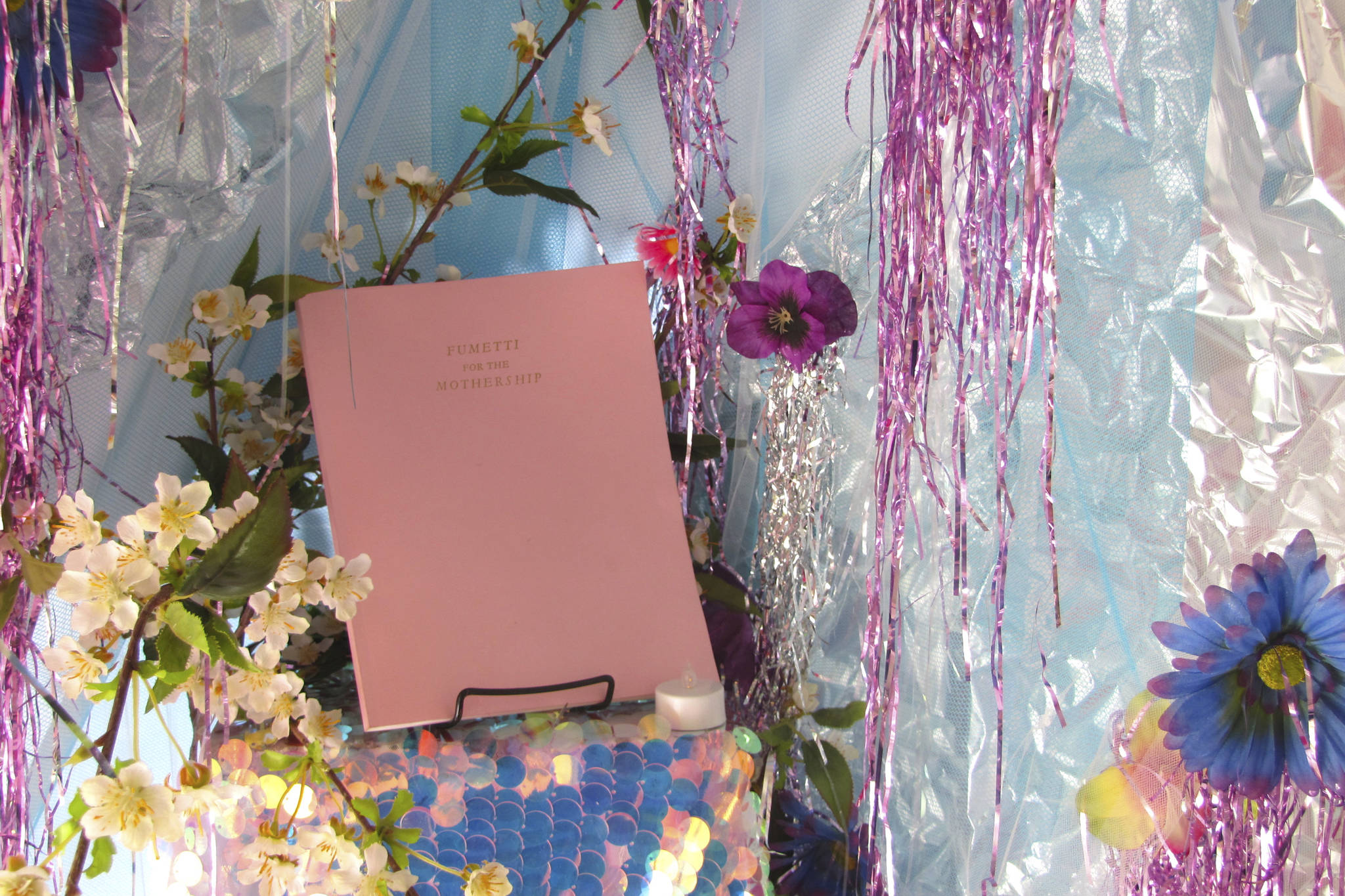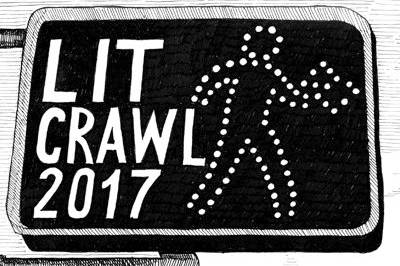It is a towering, temporary construct in the middle of publisher Mount Analogue’s Pioneer Square gallery/storefront. It resembles a child’s blanket fort: white sheets hanging from the ceiling, adorned with glittering strands of tinsel, crinkled-up tinfoil, and spritzes of brightly colored artificial flowers. The structure is surrounded by Mount Analogue’s usual decor—handmade books, ceramic cigarette packs, and gloves with weird phrases sewn into them—and a large collection of potted plants. “Everything is walk-through-able,” Mount Analogue publisher Colleen Louise Barry tells me, encouraging me to get closer and investigate.
Around the entrance to the fort, printed in multicolor sequins, is a statement. If you glance at it, you might think the meticulous letters read “NATURE IS INSIDE”—meaning, perhaps, inside the structure—but the word “YOU” trails behind, printed in duller sequins that might escape your first notice: “NATURE IS INSIDE YOU.”
Inside, it’s a junk-store wonderland: white sheets pointing to the ceiling, dotted with artificial flowers like comets trailing strands of tinsel. On the ground, a bowl of water bottles and a mess of green disposable cameras surrounded by four comfortable pillows. You’re meant to sit, cool off with one of the tiny portable fans, and maybe take a selfie or two.
This installation is called Mothership, and it’s the physical manifestation of Mount Analogue’s newest book, Fumetti for the Mothership. “Fumetti” is the Italian word for “comic book,” though in English it’s generally used to describe a popular Italian subgenre in which the comics are illustrated not with drawings but with photographs. You won’t find word balloons, panels, or other conventional comics features in Fumetti: It’s a collaboration between Barry and photographer Stephanie Passantino, and Barry’s poems interact in fascinating ways with Passantino’s images.
Read the rest of this review in Seattle Weekly’s print edition, or online here at Seattle Review of Books.
Paul Constant is co-founder of The Seattle Review of Books. Read books coverage at seattlereviewofbooks.com.








